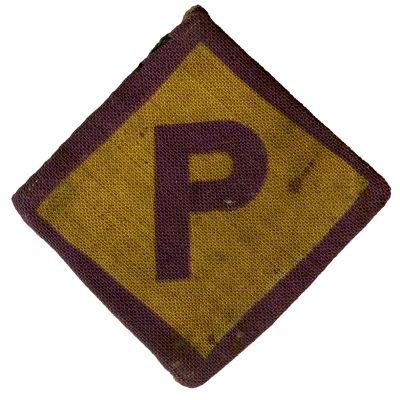The Rodło emblem

In a publication called “Na Śląsku Opolskim” issued by the Silesian Institute in Katowice in 1937 the author Stanisław Wasylewski described the Rodło and its integrating significance for the Poles in Germany in the following terms: “It was a fine idea to unite all the Poles who lived in the German state beneath a single motto in a similar manner as the Polish knights had been united in their struggles beneath the battle cry “Polkoza” or “Jastrzębica”. “Rodło” now became a third cry. The new word had soon established itself in everyday language and many people were surprised by its ancient sounding name. There were even people who searched their dictionaries in vain to try to establish its origin and meaning. But there had never been a “Rodło” beforehand. It was a completely new and striking invention. The Rodło emblem was also used by a variety of young people’s organisations in Germany, one of which was on the lily of the Polish boy scouts in Germany. The Rodło song was written in 1935:
Od wieków wszystko zwyklim kłaść w ofierze,
od wieków walczyć co dnia wciąż na nowo,
o okruch prawa, polskie „W Boga wierzę”,
o polską duszę, każde polskie słowo.Idziemy z siłą co płynie z słuszności,
nam walka hartem, a siłą wytrwanie
i przysięgamy na swych Ojców kości-
o sprawę walczyć nigdy nie ustaniem!Jesteśmy Polakami!
I tego żadna moc nie zmieni!
Bóg z nami, Sprawa z nami,
Bóg nam wiarą serca rozpłomienił!
Rodło królewskie mamy!Jesteśmy Polakami!
The author of these lines was Edmund Jan Osmanczyk and the music was composed by Pazia Kaczmarek. The “Rodlo Hymn” was written in 1938. Its author was Franciszek Jujka. It was sung for the first time by a united Polish choir at the Congress of Poles in Germany in Berlin on 6th March 1938:
Nam Bóg powierzył Ojców ziemicę,
pruskie jeziora śląskie kopalnie oraną sochą zroszoną krwią.
Dał znak rodowy Złoto w skiełany, Westfalii świat!
Wszystkich nas łączy Wisłę rodzicę,
co karmiła nykrynica swą nie rozerwalnie.
Matczyne znamię rodzony brat.
Dziejowej chwały postawił gontynę
Więźnią serdeczną splećmy rodzinę.
U Wisły źródeł wawelski gród.
Rodło niech łączy nas Hartujmy dusze na znój i trud.
Rodło niech łączy nas w mężną drużynę!
Polski my Naród, polski my lud!
W mężną drużynę!
Polski my Naród, polski my lud!
The creation of a new emblem was, without doubt, an integrating factor in the Polish minority in Germany. The use of a separate emblem differentiated the Poles from the Germans, who had adopted the Swastika and the Hitler salute after 1933. It demanded great courage from the Poles to use the Rodlo emblem, especially when acts of persecution increased in the late 1930s. Edmund Osmanczyk expressed the atmosphere reigning in these years very precisely in the following words: “It goes without saying that it [the use of the Rodlo emblem] demanded great courage, which was paid for by many in the form of imprisonment or internment in a concentration camp in 1939. It is a testament to history that until September 1939, not only in Westphalia and the Rhineland, but also on the Oder from Ratibor to Stettin, in the whole of the Oder region and East Prussia the autochthonic Polish population manifested its affiliation to the cradle of the Polish nation and culture during the dark years of the Third Reich”.
Krzysztof Ruchniewicz, April 2014



